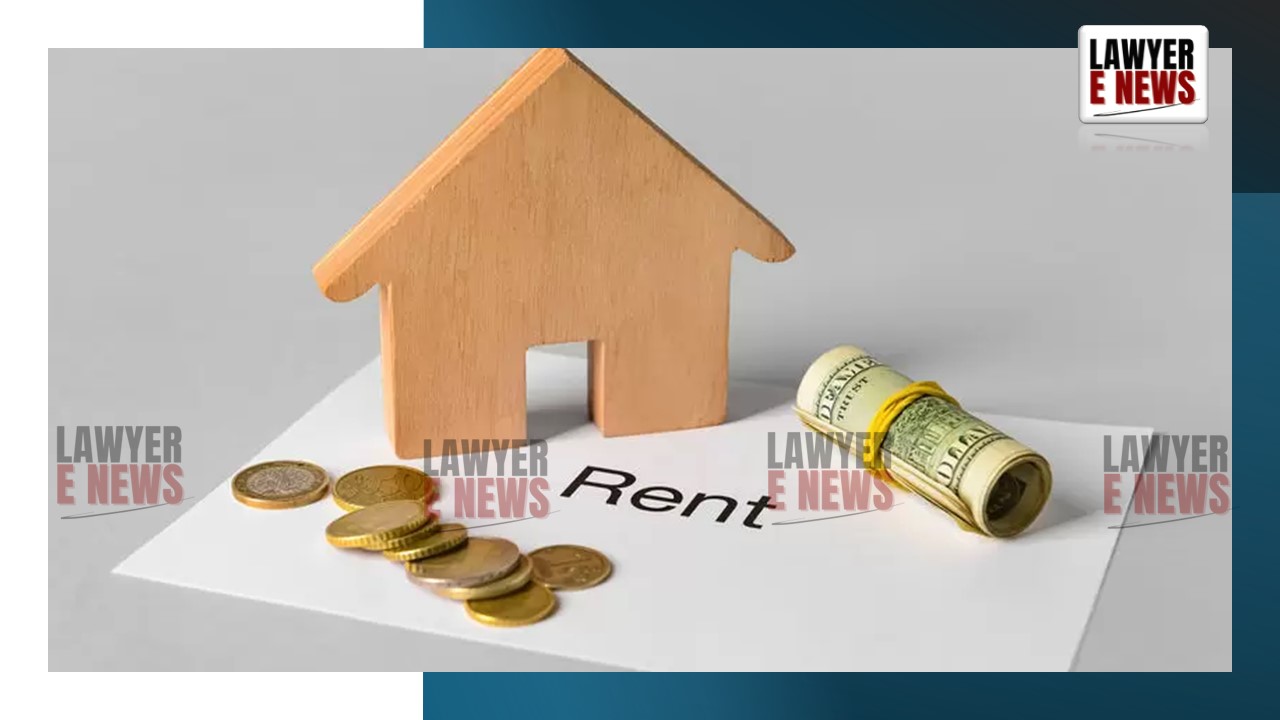-
by Admin
15 February 2026 5:01 PM



The Rajasthan High Court has ruled that a corrigendum correcting a typographical error in a government notification exempting a religious trust from the Rajasthan Rent Control Act, 2001, has retrospective effect, holding that such corrections do not create new rights but merely clarify existing ones.
In a judgment delivered on January 28, 2025, Justice Avneesh Jhingan dismissed a writ petition filed by the legal heirs of a tenant challenging eviction proceedings initiated by Shri Thakur Ji Laxminath Ji Trust. The Court rejected the contention that the corrigendum issued in 2018 had a prospective effect and that the trust property was subject to the Rent Act until then. Instead, it held that the corrigendum merely rectified a clerical error in the 2005 notification and, applying the doctrine of nunc pro tunc, related back to the original date.
"The corrigendum did not grant a fresh exemption but simply corrected an error in the trust’s name. The property was exempt from the Rent Act since September 14, 2005, and eviction proceedings under general law were valid."
Tenant’s Argument: Trust Property Was Not Exempt from Rent Control Until 2018
The Petitioners, legal heirs of the original tenant Purshottam Lal Jagnani, argued that the eviction proceedings initiated by the trust were invalid because the property was not exempt from the Rajasthan Rent Control Act, 2001, at the time of eviction.
They relied on a 2005 notification under Section 3(viii) of the Act, which exempted properties owned by religious and charitable trusts from the application of Chapters II & III of the Act. However, the notification incorrectly referred to the trust as “Thakur Shri Laxminath Ji Trust, Jhunjhunu” instead of “Shri Thakur Ji Laxminath Ji Trust, Jhunjhunu”.
A corrigendum issued in 2018 corrected this error, but the Petitioners contended that it should apply prospectively, meaning that the trust property was covered under the Rent Act until 2018 and that eviction should have been conducted under the Rent Tribunal’s jurisdiction, not general law.
High Court: "Correction of Clerical Errors Does Not Create New Rights"
Rejecting the Petitioners’ arguments, the Court ruled that a corrigendum correcting a clerical mistake does not alter the substantive effect of the original notification.
"The corrigendum was curative in nature. It did not introduce a new exemption but merely rectified the trust’s name. The exemption granted in 2005 stands valid from its original date, and the eviction proceedings were rightly conducted outside the scope of the Rent Act."
The Court further observed that it was never in dispute that the notification was intended for the Respondent Trust, and the Petitioners failed to demonstrate the existence of any other trust with the same name.
Doctrine of Nunc Pro Tunc: Corrections Relate Back to the Original Date
The Court invoked the doctrine of nunc pro tunc, which holds that a correction made to rectify a clerical error in an official document must be treated as if it had been correctly recorded from the outset.
"Accepting the Petitioners' argument would mean that a mere typographical error in a notification could delay an exemption’s effect by years. That is neither the legislative intent nor a reasonable legal interpretation."
The Court relied on Government of India v. Indian Tobacco Association (2005) 7 SCC 396, where the Supreme Court ruled that when a corrigendum is issued to rectify an error, it must be presumed to have existed in its correct form from the beginning.
Similarly, in State of A.P. v. A.P. State Wakf Board, AIR 2022 SC (Supp) 645, the Supreme Court ruled that a corrigendum issued to correct a printing error cannot be treated as a new notification but must be read as a continuation of the original document.
The High Court also cited: Commissioner of Sales Tax, U.P. v. Dunlop India Ltd. (1994) 92 STC 571, where it was held that a corrigendum correcting an error in a government notification would relate back to the original date.
Sree Sankaracharya University v. Dr. Manu, AIR 2023 SC 2645, which clarified that curative amendments apply retrospectively unless they change substantive rights.
"A corrigendum cannot change the law—it can only clarify what was already intended. The exemption granted in 2005 remains valid from that date."
The Petitioners relied on The Strawboard Manufacturing Co. Ltd. v. Gutta Mill Workers’ Union, AIR 1953 SC 95, Maharaja Shri Umaid Mills Ltd. v. Industrial Tribunal, AIR 1954 Raj 274, and Kapoorchand v. State of Rajasthan, 1962 Rajasthan 258, arguing that subordinate legislation cannot be applied retrospectively unless explicitly stated.
The High Court distinguished these cases, ruling that they involved issues of delegated legislation and administrative power, whereas the present case involved a mere typographical correction.
"The cases relied upon by the Petitioners dealt with substantive amendments to law, not clerical corrections. They are inapplicable here."
Conclusion: Petition Dismissed – Eviction Proceedings Were Legally Valid
The Rajasthan High Court upheld the eviction proceedings against the tenants, ruling that the trust property had been exempt from the Rent Control Act since 2005 and that the corrigendum merely corrected a clerical error without affecting the exemption’s validity.
"The corrigendum did not grant a fresh exemption—it only corrected an error in the trust’s name. The property has been exempt from the Rajasthan Rent Control Act, 2001, since September 14, 2005, and the eviction proceedings under general law were valid." Accordingly, the writ petition was dismissed.
Date of decision: 28 January 2025
